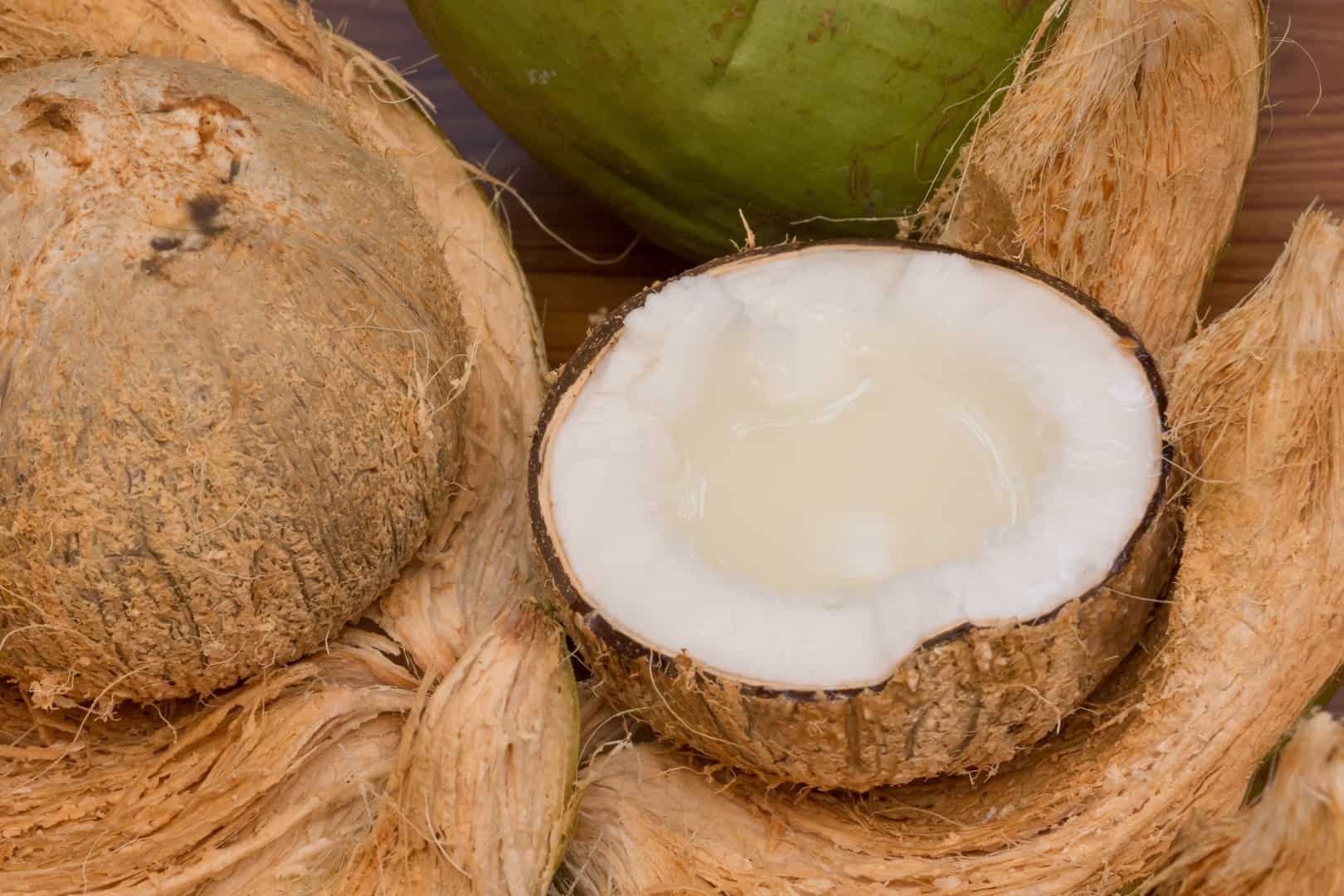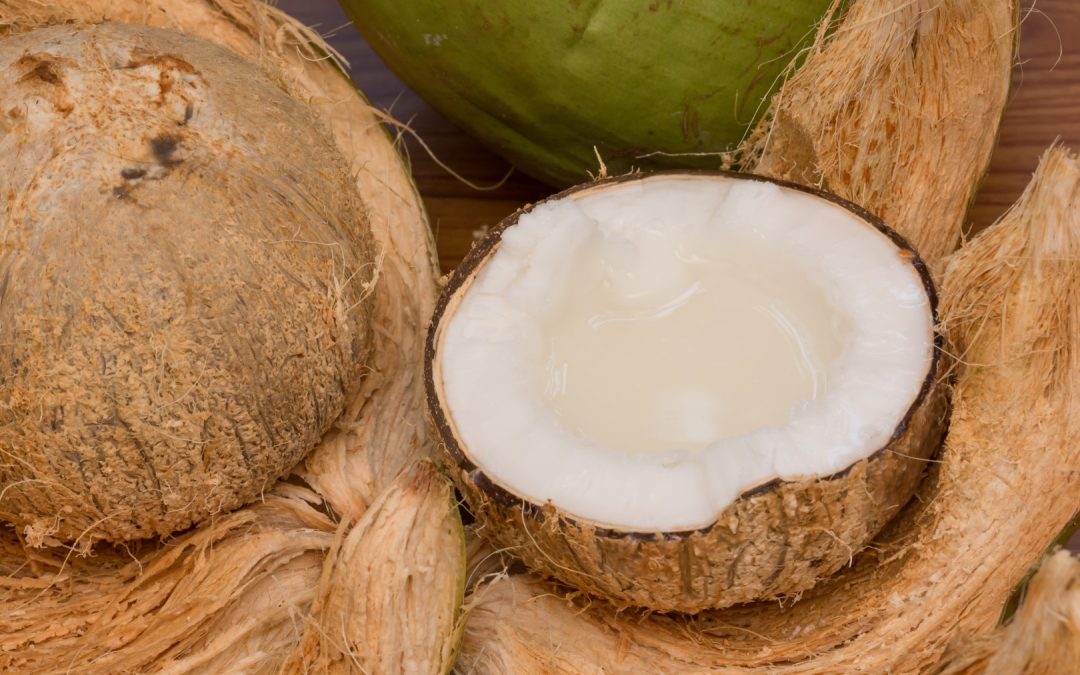
They call it a “mutant coconut,” but something that delicious is definitely more of a gift than a deformity. Coconut “sport,” or what is locally known as macapuno, is a naturally occurring event in the endosperm. Simply put, instead of getting the typical firm, white meat inside a mature coconut shell, what you are greeted with is this very soft and translucent jelly.
It is impossible to distinguish the difference between your average coconut from the coconut sport variety by simply looking at the seeds. The only way to know is when you break them open and what you will see is a very thick and chewy layer of coconut meat almost filling the entire cavity, hence the name macapuno, which in Filipino loosely means “almost full.”
Coconut sport has a higher sucrose level than your regular coconut and the lipid content in the flesh is lower. It also has higher content of citric and malic acids, contributing to the overall texture and flavor profile of the coconut sport flesh.
It used to be close to impossible to cultivate coconut sport seeds since they cannot germinate themselves and would have to be planted with “normal” seeds. Mass propagation only occurred when plant physiologist Emerita de Guzman from The University of the Philippines did in vitro culturing of the coconut sport embryos. By doing this, she was able to increase the yield from palms by 75-100%. Dolores Ramirez of University of the Philippines-Los Baños is also credited for working on the genetic systems of the coconut sport endosperm.
In Filipino cuisine, macapuno is widely used and is popular for its sweet, coconut flavor. It is usually bottled and preserved, then enjoyed on its own or as an ingredient in traditional desserts such as halo-halo and pastillas. The rise in demand for coconut sport as the main ingredient for many food products like sweets, desserts, candies and ice cream is enhanced by its use in non-food products such as cosmetics, lotions, and soaps. This has encouraged farmers, investors, and entrepreneurs to invest more on the crop seeing its potential as a lucrative business.


Recent Comments